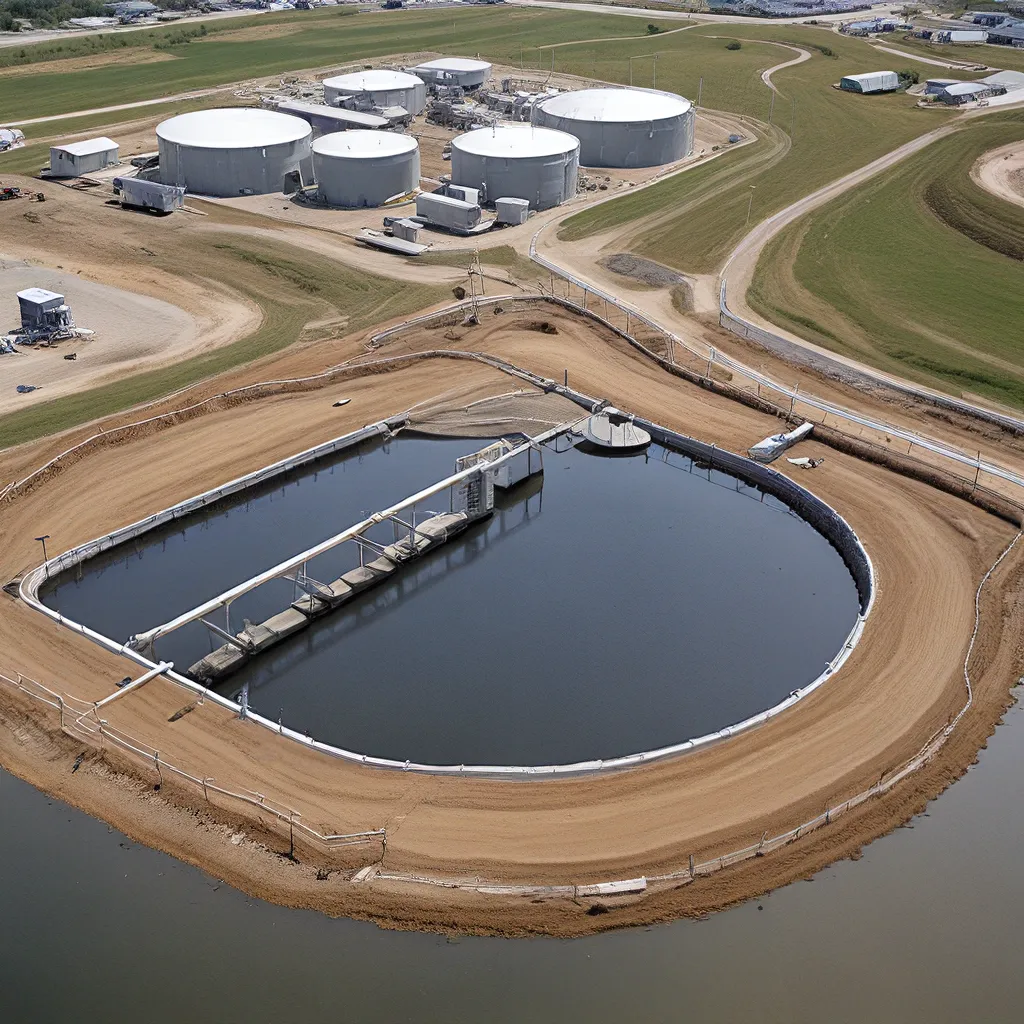
As someone who’s been in the wastewater management game for a while, I can tell you that navigating the complexities of private wastewater systems is no walk in the park. It’s a world filled with intricate regulations, advanced technologies, and high-stakes decisions that can make even the most seasoned professionals scratch their heads. But fear not, my friends – I’m here to guide you through this labyrinth of wastewater wonderment.
Understanding the Landscape
Let’s start with the basics. Private wastewater systems are those that are owned and operated by individual property owners, rather than being part of a municipal or centralized sewer system. These systems can take many forms, from simple septic tanks to advanced on-site treatment facilities, and they play a crucial role in ensuring the proper disposal and treatment of wastewater.
Now, you might be thinking, “How hard can it be? It’s just a septic tank, right?” Oh, how wrong you’d be, my friend. These systems are complex beasts, with a whole host of moving parts that need to be carefully monitored and maintained. From the condition of the septic tank to the health of the drainfield, every component is essential to the system’s overall performance.
The Importance of Inspections
One of the key factors in navigating the complexities of private wastewater systems is the role of inspections. When you’re dealing with a property that has a private system, these inspections are absolutely crucial. They can reveal the current state of the system, identify any potential issues, and provide valuable insights into the system’s long-term viability.
As the experts at Van Delden Wastewater Systems explain, these inspections are particularly vital when it comes to real estate transactions. After all, the last thing you want as a new homeowner is to be saddled with the unexpected costs of a failing septic system. By ensuring that a thorough inspection is part of the buying process, you can rest assured that you’re making an informed decision and avoiding any unpleasant surprises down the line.
Navigating Regulations and Compliance
But the complexities don’t stop there, my friends. Private wastewater systems are also subject to a whole host of regulations and compliance requirements, which can vary significantly depending on your location and the specific characteristics of your system.
As Veolia North America notes, ensuring compliance with these stringent regulations is a crucial aspect of wastewater management, whether you’re a municipality, an industrial facility, or a private property owner. Failing to stay on top of the rules and regulations can lead to hefty fines, environmental damage, and a whole lot of headaches.
That’s where the experts come in. By partnering with experienced wastewater management professionals, you can navigate these regulatory landscapes with confidence, ensuring that your system is operating in compliance with all the necessary standards and requirements.
Innovative Solutions and Technologies
But it’s not all doom and gloom, my friends. The world of private wastewater systems is also home to some truly innovative solutions and technologies that are revolutionizing the way we approach wastewater management.
As the experts at TYLin have explored, advancements in areas like cured-in-place pipe (CIPP), slip lining, and carbon fiber-reinforced polymer (CFRP) are opening up new possibilities for the rehabilitation and renovation of aging infrastructure. And the best part? These technologies often come with a lower price tag and a smaller environmental footprint than traditional excavation methods.
So, if you’re dealing with an older private system that’s starting to show its age, don’t despair – there might be a high-tech solution out there that can breathe new life into your wastewater infrastructure.
The Power of Partnerships
Of course, navigating the complexities of private wastewater systems is no easy feat, and it’s not something that you have to (or should) do alone. That’s where the power of partnerships comes into play.
By teaming up with experienced wastewater management professionals, like those at Alpha Wastewater, you can tap into a wealth of knowledge, expertise, and resources that can help you tackle even the most daunting challenges. These experts can guide you through the regulatory maze, help you identify the right technologies for your needs, and ensure that your system is operating at peak efficiency.
And let’s not forget the importance of collaboration within the industry itself. As TYLin has highlighted, cross-functional teams of engineers, consultants, and contractors can often be the key to successful wastewater rehabilitation projects. By working together, they can leverage their collective expertise to develop creative, resilient, and effective solutions that meet the unique needs of each project.
Embracing the Future
Now, I know what you’re thinking: “This all sounds great, but what about the future of private wastewater systems?” Well, my friends, the future is bright, and it’s filled with exciting possibilities.
As we continue to grapple with the challenges of aging infrastructure, growing populations, and increasing environmental concerns, the need for innovative and sustainable wastewater management solutions will only become more pressing. And that’s where the cutting-edge technologies and collaborative mindsets I’ve been talking about will really shine.
From the rise of fold-and-form systems to the growing adoption of glass-reinforced plastic (GRP) panel liners, the possibilities are endless. And let’s not forget the ongoing push for more environmentally friendly solutions, which are helping to minimize the impact of wastewater systems on our precious natural resources.
So, whether you’re a seasoned pro or a newcomer to the world of private wastewater systems, I encourage you to keep an open mind, stay curious, and embrace the future. After all, the more we learn and the more we collaborate, the better equipped we’ll be to tackle the complexities that lie ahead.